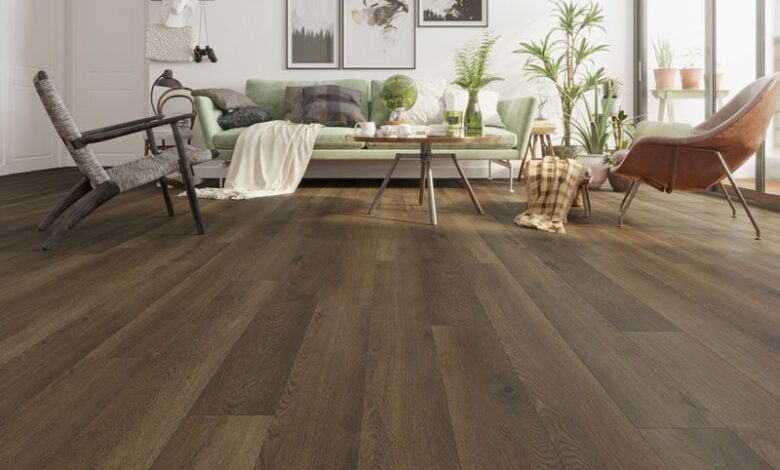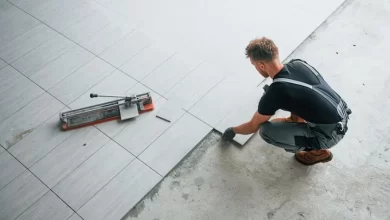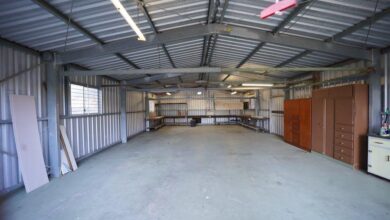Is 8mm Vinyl Flooring Good?

Vinyl flooring has become an increasingly popular flooring option for homes and businesses in recent years. One decision you’ll need to make when choosing vinyl floors is the thickness, with 8mm being a common size. But is 8mm vinyl flooring a good thickness for your needs?
There are a few key factors to consider when determining if 8mm vinyl flooring is ideal:
Durability
One of the biggest considerations is durability. Thicker vinyl flooring is typically more durable and resistant to indentations, wear and tear. Many experts recommend 8mm as the minimum thickness for vinyl plank flooring to hold up well over time.
Here are some durability factors related to 8mm vinyl flooring:
- Withstands Foot Traffic: 8mm vinyl can generally withstand regular foot traffic, moving furniture and low to moderate impact. It may show some indentation from heavy objects over time.
- Resists Water Damage: Vinyl is waterproof, so 8mm planks can resist water spills. Useful for kitchens, baths and basements. Thicker vinyl is more impervious to flooding situations.
- Handles Temperature Changes: 8mm vinyl holds up well to heat and cold. It expands and contracts less than thinner vinyl when temperatures fluctuate.
- Minimizes Joint Gapping: Seams between vinyl planks are less likely to separate or gap with 8mm thickness. Thinner floors may gap over time as the foundation settles.
- Reduces Noise Transfer: 8mm muffles noise from adjacent rooms better than thinner flooring. It helps block impact sound transmission.
So while 12mm vinyl flooring is most durable, 8mm has enough thickness for moderate residential and light commercial use when installed properly.
Comfort Underfoot
Underfoot comfort is another consideration with vinyl plank flooring. Thicker floors tend to feel more cushioned and supportive when walking on them.
Here’s how 8mm vinyl rates for underfoot feel:
- Good Shock Absorption: The extra thickness in 8mm vinyl helps absorb impact from walking and dropped items better than thin floors. Easier on legs and back.
- Reduces Fatigue: 8mm provides a bit more bounce back and flex, reducing leg fatigue from standing on hard floors for long periods. Thinner vinyl has less give.
- Warmer Underfoot: 8mm retains a bit more warmth than very thin floors over a cold subfloor. It insulates slightly better.
- Adds Stability: The added rigidity of 8mm helps reduce the hollow feel of very thin vinyl flooring. Provides more stable footing.
- Minimizes Indentations: 8mm distributes weight better than thin floors, making it less prone to showing footprints or rolling loads. Slows indentation.
An attached cork underlayment can enhance comfort further. Overall, 8mm strikes a good balance between thin, hard floors and thicker cushier vinyl.
Installation Factors
8mm vinyl flooring has some advantages when it comes to ease of installation:
- Conforms Better: The flexibility of 8mm vinyl allows it to adapt to minor subfloor imperfections and flatten out better than rigid planks during installation.
- Resists Hollow Spots: An 8mm plank is less likely to bridge over low spots, reducing bouncing or hollow areas under the floor. Thinner vinyl is more prone to this issue.
- Hides Minor Flaws: The extra thickness helps smooth out small subfloor defects better compared to thin vinyl flooring.
- Stays in Place: 8mm vinyl planks and tiles adhere properly and stay in place well when installed with a quality adhesive. Thinner floors can shift more easily.
- Offsets Differences in Plank Lengths: The added thickness helps compensate for slight variances in individual plank lengths that can occur with thinner floors.
However, the extra weight of 8mm vinyl flooring makes it more difficult for DIY installation. It’s ideal to have a professional installer for a smooth 8mm vinyl floor with minimal seams or imperfections.
Cost Comparison
Thickness plays a role in material costs for vinyl flooring. Here’s how 8mm vinyl compares:
- More Expensive than Thin Vinyl: 8mm vinyl planks or tiles typically cost $2-$4 more per square foot than thin 4-6mm residential vinyl flooring.
- Less Expensive than Thick Vinyl: High-end 12-20mm commercial grade vinyl runs $6-$10 more per square foot compared to 8mm on average.
- Similar Cost to Laminate Flooring: 8mm luxury vinyl costs about the same as mid-range laminate floors. More affordable than natural wood or stone floors.
- Lower Installation Costs: The DIY-friendly click-lock planks mean 8mm vinyl requires less labor expense for floating installation compared to glued down floors.
Overall, the moderately thicker 8mm vinyl hits a nice balance point between cost and performance. Shoppers should weigh the material price versus expected durability for their needs.
Pros of 8mm Vinyl Flooring
There are many benefits that make 8mm a popular choice for vinyl plank flooring:
- Good durability for residential use
- Enhanced comfort underfoot
- Easier installation than very thin or very thick floors
- Reasonable mid-range pricing
- Available in attractive luxury plank looks
- Waterproof and moisture resistant
- Insulates against sound transmission
- Retains warmth and is comfortable underfoot
- Resists indentation from furniture
- Handles temperature fluctuations well
- Low maintenance cleaning
- Long warranties available when professionally installed
- Can mimic wood, tile or stone aesthetics
- Extensive style and color options
Cons of 8mm Vinyl Flooring
The potential drawbacks to consider with 8mm vinyl include:
- Less durable than thicker 12-20mm commercial grade vinyl
- Not as plush underfoot as cushioned vinyl
- Prone to gouging from heavy dropped objects
- Can show indentation from heavy furniture over time
- More difficult for DIY installation than thinner vinyl
- Rigid planks don’t conform to uneven subfloors as well as flexible vinyl
- Improper installation can lead to gaps, lifting planks
- Susceptible to damage from excess moisture or flooding
- Can appear hollow sounding if not properly underlayed
- Has a plastic-like look and feel vs. natural materials
Uses for 8mm Vinyl Flooring
8mm luxury vinyl plank flooring is well-suited for these applications:
- Residential flooring in living rooms, kitchens, dining rooms, hallways
- Home offices, studies, bedrooms
- Basements, laundry rooms, mudrooms
- Bathrooms, powder rooms (waterproof)
- Rental units, Airbnbs, man caves
- Light commercial offices, boutiques, waiting rooms
- Assisted living facilities, retirement communities
- Dorm rooms, childrens’ bedrooms
- Recreational spaces, locker rooms (waterproof)
Alternatives to 8mm Vinyl Flooring
Other flooring options that may better suit some spaces include:
Thinner 4-6mm Vinyl: Very affordable, flexible and easy to install DIY. Best for temporary situations like rental units. Too thin for long term durability.
Thicker 12-20mm Vinyl: Most durable, great for commercial spaces like restaurants and stores. Higher cost but long lifespan under heavy use.
Laminate Flooring: Durable and attractive woood-look plank floors at a mid-range price point. Not waterproof.
Luxury Vinyl Tile (LVT): Tile format available in stone and wood looks. Easy DIY installation. Resists moisture but shows seams.
Engineered Hardwood: Real wood construction resists swelling and is HDF-core is durable. Costs more but offers natural wood beauty.
Ceramic or Porcelain Tile: Beautiful and waterproof with endless design options. Challenging DIY installation and prone to cracking or chipping.
Carpet Tiles: Customizable soft floors perfect for bedrooms, playrooms and home offices. trap allergens and stains but convenient to replace individual tiles if damaged.
No flooring option is perfect. Choose the benefits most important for your project, then look for vinyl flooring brands that offer quality construction, attractive looks and reasonable pricing. With proper installation, 8mm vinyl can be a great choice for residential floors. Evaluate your budget, lifestyle needs and project goals to decide if 8mm vinyl flooring is a good fit.



